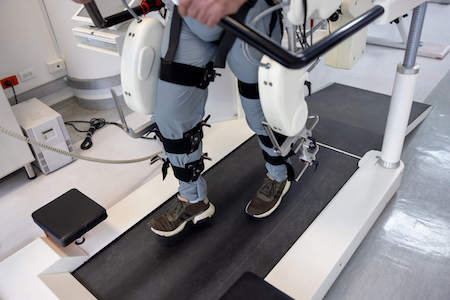Organizations today are grappling with how to make sense of an inordinate amount of disparate data.
The ability to transform a sea of data into actionable insights can have a profound impact—from predicting the best new diabetes treatment to identifying and thwarting national security threats.That’s why businesses and government agencies are rushing to hiredata scienceprofessionals who can help do just that.
By extrapolating and sharing these insights, data scientists help organizations to solve vexing problems. Combining computer science, modeling, statistics, analytics, and math skills—along with sound business sense—data scientists uncover the answers to major questions that help organizations make objective decisions.
Take an Interdisciplinary Approach to an Ever-Evolving Field
Learn how Northeastern’s advanced data science degree can accelerate your career.
Data Scientist Role and Responsibilities
Data scientists work closely with business stakeholders to understand their goals and determine how data can be used to achieve those goals. They design data modeling processes, create algorithms and predictive models to extract the data the business needs, and help analyze the data and share insights with peers. While each project is different,the process for gathering and analyzing datagenerally follows the below path:
1. Ask the right questions to begin the discovery process
2. Acquire data
3. Process and clean the data
4. Integrate and store data
5. Initial data investigation and exploratory data analysis
6. Choose one or more potential models and algorithms
7.应用数据的科学技术,如机器learning, statistical modeling, and artificial intelligence
8. Measure and improve results
9. Present final result to stakeholders
10. Make adjustments based on feedback
11. Repeat the process to solve a new problem
Common Data Scientist Job Titles
The most commoncareers in data scienceinclude the following roles.
- Data scientists:Design data modeling processes to create algorithms and predictive models and perform custom analysis
- Data analysts:Manipulate large data sets and use them to identify trends and reach meaningful conclusions to inform strategic business decisions
- Data engineers:Clean, aggregate, and organize data from disparate sources and transfer it to data warehouses.
- Business intelligence specialists:Identify trends in data sets
- Data architects:Design, create, and manage an organization’s data architecture
Although the roles of data scientists anddata analystsare often conflated, their responsibilities are actually quite different. Put simply, data scientists develop processes for modeling data while data analysts examine data sets to identify trends and draw conclusions. Because of this distinction and the more technical nature of data science, the role of a data scientist is often considered to be more senior than that of a data analyst; however, both positions may be attainable with similar educational backgrounds.
Learn More:Data Scientist vs. Data Analyst
Data Science Career Outlook
By many accounts, becoming a data scientist is a highly desirable career path. For five years in a row,Glassdoor ranked data scientists as one of the 10 best jobs in America, based on median base salary, the number of active job openings, and employee satisfaction rates. Likewise, Harvard Business Review called data science “the sexiest job of the 21st century,” noting that “high-ranking professionals with the training and curiosity to make discoveries in the world of big data” are in major demand.
From startups to Fortune 500s to government agencies, organizations are seeing the value in capitalizing on big data. Google’s Chief Economist Hal Varian spoke about the need for data scientists back in 2009, tellingMcKinsey Quarterly, “the ability to take data—to be able to understand it, to process it, to extract value from it, to visualize it, to communicate it—that’s going to be a hugely important skill in the next decades.”
This prediction proved prescient. A report by LinkedIn ranked data science asone of the top emerging jobs in 2020.
The United States Bureau of Labor Statistics concurs, stating thatemployment of all computer and information research scientists is expected to rise 16 percent by 2028—a rate of increase that exceeds many other professions. Yet, data scientists are relatively scarce, meaning it’s now an opportune time to upskill and enter the field.
Data Scientist Salaries
According toRobert Half Technology’s 2020 Salary Guide, data scientists earn an average annual salary between $105,750 and $180,250 per year. However, compensation can vary depending on location. For example, average salaries in cities across the United States include:
- San Francisco:$121,836
- Seattle:$108,399
- New York:$101,387
- Boston:$101,064
- Los Angeles:$99,014
- Austin:$96,495
- Atlanta:$91,049
- Washington, D.C.:$89,738
- Chicago:$88,758
- Charlotte:$87,306
Additionally, as data scientists gain experience, they often move into more senior positions with higher pay. These include:
Essential Data Science Skills
Most data scientists use the following core skills in their daily work:
- Statistical analysis:Identify patterns in data. This includes having a keen sense of pattern detection and anomaly detection.
- Machine learning:及其ment algorithms and statistical models to enable a computer to automatically learn from data.
- Computer science:Apply the principles of artificial intelligence, database systems, human/computer interaction, numerical analysis, and software engineering.
- Programming: Write computer programs and analyze large datasets to uncover answers to complex problems. Data scientists need to be comfortable writing code working in a variety of languages such as Java, R, Python, and SQL.
- 数据讲故事:Communicate actionable insights using data, often for a non-technical audience.
Data scientistsplay a key role in helping organizations make sound decisions. As such, they need “soft skills” in the following areas.
- Business intuition:Connect with stakeholders to gain a full understanding of the problems they’re looking to solve.
- Analytical thinking.Find analytical solutions to abstract business issues.
- Critical thinking:Apply objective analysis of facts before coming to a conclusion.
- Inquisitiveness:Look beyond what’s on the surface to discover patterns and solutions within the data.
- Interpersonal skills:Communicate across a diverse audience across all levels of an organization.
Starting a Career in Data Science
Most employers look for data science professionals with advanced degrees, such as aMaster of Science in Data Science.Candidates for data science roles usually begin with a foundation in computer science or math and build on this with a master’s degree in data science,data analytics, or a related field.
In these graduate-level programs, professionals gain core competencies in skills such aspredictive analytics,statistical modeling, big data, data mining applications, enterprise analytics,data-driven decision making, data visualization, anddata storytelling.
TheMaster of Science in Data Science program at Northeastern University, for example, is an interdisciplinary program of study which combines courses from the Khoury College of Computer Sciences and the College of Engineering to provide students with comprehensive frameworks for processing, modeling, analyzing, and drawing conclusions from data. Additionally, Northeastern’s industry-aligned faculty bring their experiences from the field to the classroom, allowing students to gain first-hand knowledge of the top issues facing big data.
Alternatively, some students may find that a degree in data analytics is better suited to their career goals.Studying data analytics teaches students how to employ statistics, analytics systems technology, and business intelligence to achieve specific goals. With this foundational knowledge, students discover how to find a logical, data-driven path to resolving a complex problem. They also learn how to overcome data obstacles, such as dealing with uncertain data sets and reconciling data from disparate sources.
TheMaster of Professional Studies in Analytics program at Northeastern University准备学生通过应用原理、工具s, and methods of analytics to a project within a sponsoring organization. Graduates complete the program with a core analytical skillset upon which to layer more specialized technical or industry-specific applications. Experiential learning is a key component of the program. Students learn by building portfolios of real-world projects, demonstrating competency with key technologies, visualization, and communication techniques, and the ability to translate information into recommended actions.
To learn more about advancing your career in data science, explore ourprogram page.







Related Articles
What Does a Data Analyst Career Path Look Like?
Northeastern’s MPS in Analytics Curriculum
Tips for Starting a Video Game Development or Design Career